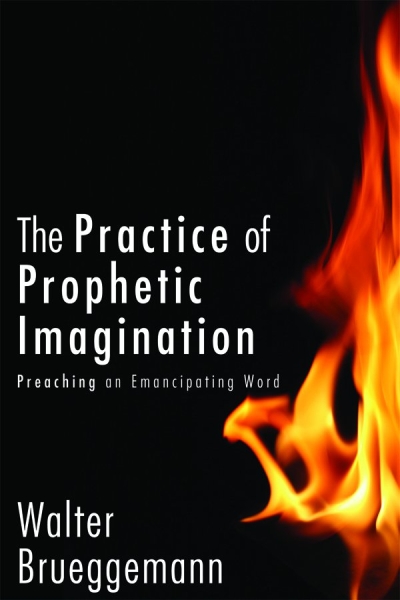For me, Lose gave me many words for things that I wasn't sure how to express about the state of preaching in the post-Christian, Western society. While I've been living and breathing this context for my entire life, and then studying it intensively in my amazing progressive seminary, I realized that many working pastors may not have a real grasp on the implications of postmodernity, secularism, and pluralism in the everyday lives of their congregants (and potential congregants). Lose spends three chapters unpacking each of these terms, and then a subsequent three chapters providing practical advice for preachers who want to engage these concepts in real ways in sermon preparation, planning, and delivery.
One thing that I do want to touch on is the way he discussed the idea of biblical fluency. I noted my concerns with Willimon's work and with Barbara Brown Taylor's remarks about biblical language, and how I'm generally uncomfortable with biblical language itself being considered normative for Christians. There is something about that idea of teaching an entirely new vocabulary that has the ring of shibboleth to it. But Lose, in a parenthetical, nearly toss-off moment says that he believes Christian churches need to promote biblical fluency, or "the ability to think--without thinking--in the target language." In this way, I understand biblical fluency not to be about vocabulary, but sight. Not flashcards, but paradigm. And that's something that I don't think language is capable of doing.
Though I didn't feel like Lose was saying anything radically different than many of the folks I've been reading or that I heard at the Festival said, he did so in a way that was pastoral and clear. And in this way, it helped me to understand that in many ways, many of the clergy who I am so frustrated with are just not quite equipped yet to deal with the tasks at hand. Or, they feel like they need a prescription for success. At the end of Lose's work, like so many works on preaching right now, he acknowledges that he hasn't offered something more concrete for the preacher to put into action (though I think he does put some excellent concrete ideas out there). But he doesn't apologize for it. Rather, he seems to be excited about the adventure of rediscovering what preaching might mean here and now and in the future. And that made me excited about it. Actually, it made me excited about what I might have to contribute to the conversation myself. So, yeah. Nicely done, David Lose.
Some choice quotes:
- "If we are called to proclaim good news that is not just old news or the daily news but regularly surprises and even arrests our hearers, then perhaps preachers should not be surprised by the inherent and unending challenge of doing that" (3).
- "Does Scripture...have nothing more to say to us than what we have already heard and perceived?" (39).
- "...we preachers do not come to Scripture without a set of questions influenced by our context and experience. And we should not, as our questions are what bring us to the text in the first place. At the same time, by admitting that our context and experience powerfully shape not only our questions for Scripture but also our expectations of Scripture, we make room for others--including the voices within the Scriptures--to call into question our questions, both keeping us honest and keeping a vibrant conversation going" (41).
- "In this way, the preacher comes not as the trained expert designated to give a guided tour of an ancient text--let alone perform a postmortem on a dead confession of faith--but rather as an experienced guide and host who makes claims, suggests lively interpretations, makes a wager about the present-day meaning and interpretation of a passage, and ultimately invites the hearer not just to take these claims and confessions seriously but also to respond to them in word and deed" (45).
- "...we have unintentionally affirmed the secular impulse to restrict God's activity and therefore have made it increasingly difficult for our people to imagine being 'called' in their daily lives in the secular world. In particular, we have so greatly stressed the importance of Sunday activities that we have unintentionally devalued the lives we lead during the rest of the week" (69).
- "Visit your people in their vocational arenas, and describe those visits in your preaching...Perhaps it's we who feel odd or out of place in the public venues of our people's lives, at least when we come as a pastor" (73).
- "Over time, through this and other practices your congregation may grow from being a place where the word is preached more fully into a community of the word where all the members take some responsibility for sharing the good news of God's ongoing work to love, bless, and save the world" (77).
- "Increasingly, researchers suggest that in a world saturated by meaning-making stories, the mainline church has failed to offer a compelling and central narrative identity that not only informs but also guides the lives of their congregants by providing a resilient religious identity" (100).
- "Preaching from this framework, is equal measures (1) teaching of the basic worldview and how to apply it to life and (2) exhortation to do so" (103).




